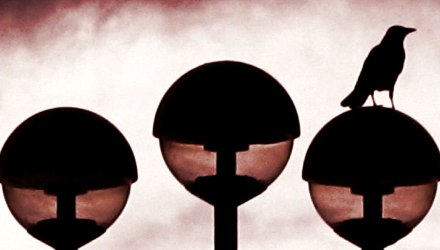This weekend I should be in London, with thousands of other writers and fans of genre fiction. I’m not. I’m still at home in Scotland, where Summer is packing up the last of his bags and preparing to head south, while Autumn stands on the threshold tapping her foot in her impatience to get onto his wonderful carpets and cover them in kipple.
Back at the beginning of April, my Dad was killed in a motor racing accident in Hockenheim, Germany. I was — am — devastated. The effect has been emotionally overwhelming. For the first time in my whole life, my hypergraphia stopped. It just stopped, as if a switch had flipped into the ‘off’ position. Other than for the day job, I was unable to find it in myself to string words together and put them down on paper. That part of me was numb, unfeeling.
When I forced myself to write, to post on social media, pen a swift report of our inaugural bike ride from Kirkcaldy to Aberdeen, or review a wine for Naked Wines, it didn’t felt like me doing it. The part of me invested in writing had gone on some kind of retreat. I could still put words together, order them grammatically, construct some kind of narrative, assay them for clarity and conciseness, but the results were neither here nor there in the grand scheme of things.
I lost that spark, without which one is not a writer.
For a while I worried this meant I had never been a writer. After all, if it were that important to me, surely I would have carried on despite the grief. Instead I threw myself into triathlon, poring over heart rate charts and race timings. I cleaned my house, decluttered, grew vegetables and flowers, polished my bicycles. Went walking, running, swimming in the sea, paddling.
I’ve hurled myself at anything that constrained me to the Here-Now-Present, because shivering on the other side of a translucent wall of stoicism is an endless ocean of sadness. It leaks tears sometimes, when something happens to bring that loss into my Here-Now-Present.
Writing fiction isn’t Here-Now-Present. It can’t be. It’s anything but Here-Now-Present, and I’ve come to realise it’s the one thing desperately important to me that can’t be condensed into a single mote of ongoing experience.
Writing fiction requires an emotional investment. If you don’t feel your writing, nobody else is going to. My emotions are bruised and swollen and sore; concentrating on physical tasks and pretending I’m fine has been the psychological equivalent of the Rest Ice Compression Elevation approach to dealing with injury.
In the last couple of weeks I have written my first complete story since it happened. It’s not my best piece of work, but it has a beginning, middle and end; conflict and resolution; a character with agency and a certain bleak humour. It’s not the worst thing I have ever written (a label I shall reserve for the Ghostbusters and Blake’s 7 fanfic I wrote when I was at school, before fanfic was a thing). I’ve also picked up a WIP and added some good words — they may not survive the edits, but they are good words. I have submitted a piece to market.
I’m no longer worried that spark is gone forever, which is a small island of relief on that shivering sea.
The lesson here is not that time heals all things — it doesn’t, but it will dull the pain if it can — but that the writer is the most important part of the writing process. You have to look after yourself, and if that means giving up an opportunity because you are not fit, so be it. No athlete would start a race with a broken leg (although he might try to carry on for a while if the injury occurred during it). As much as I really wanted to go to LonCon, I made the right decision.
I could not have coped with WorldCon this year. I am an introvert who works hard at giving the appearance of not being so when it is professionally necessary. It exhausts me. I need to be physically fit enough to tackle the endurance events Summer so thoughtfully brings each year when he sweeps up the leavings of Spring’s exuberance; equally I need to be emotionally fit enough to cope with the mental endurance event of being in the same place as almost 10,000 strangers for 5 days. I am not, and am very grateful to be sufficiently aware of my limitations that I knew better than to try.
Yet, as my writing recovers, and the hypergraphia twitches its millipede feet and considers uncurling to resume its endless meandering around my pathways and byways, I can see a time when I will be.
For that, I am also very grateful.


